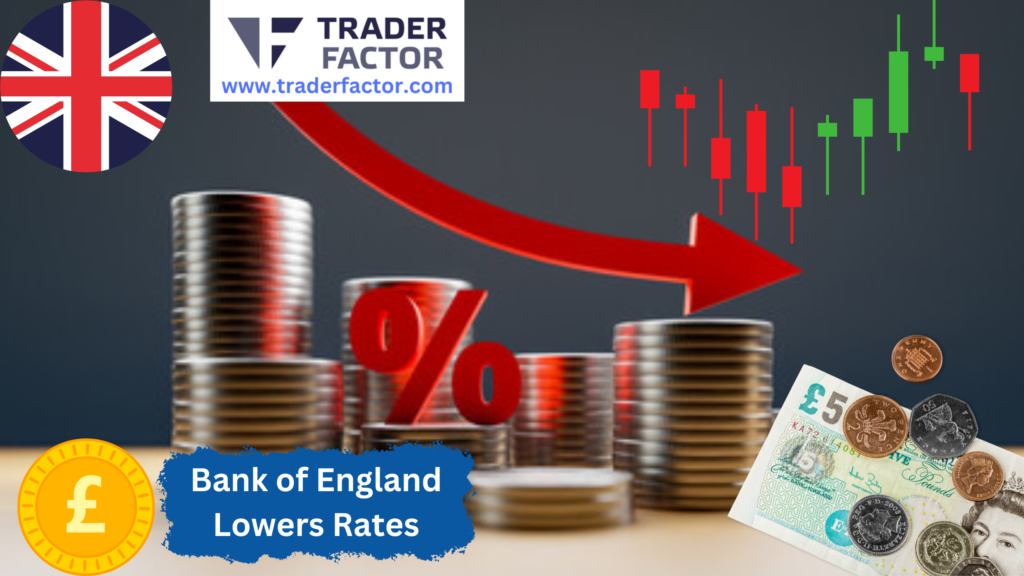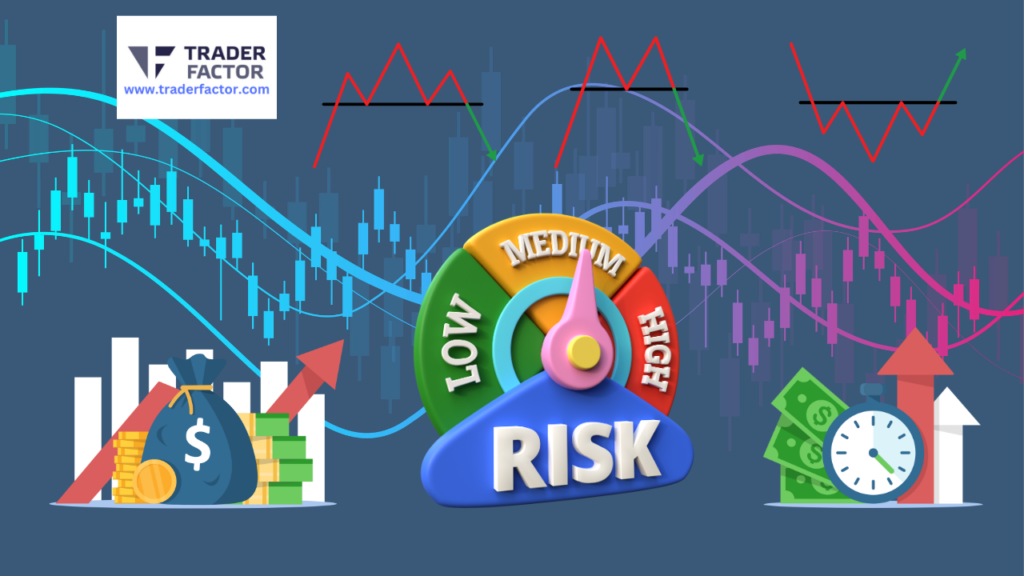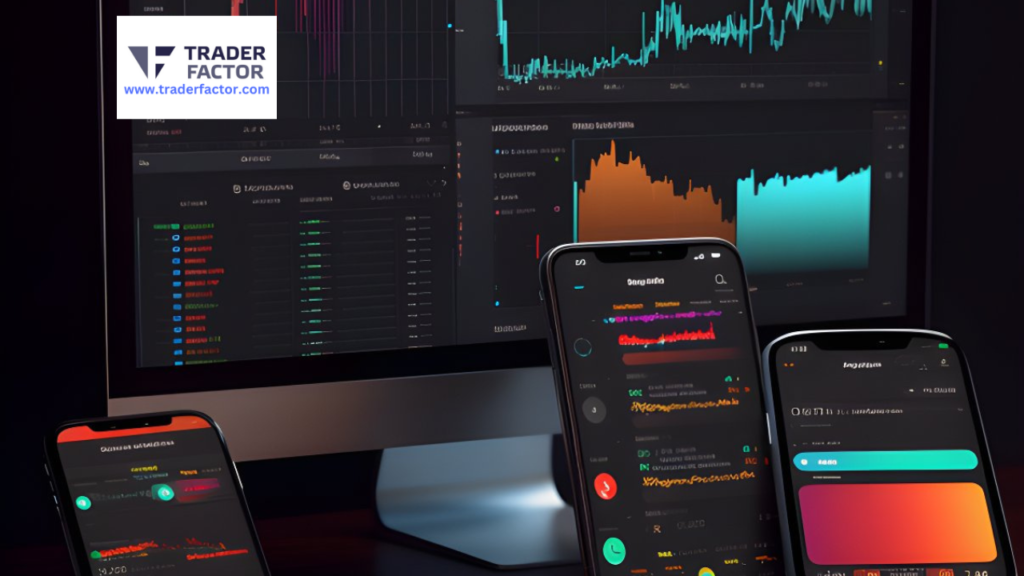Are you skeptical about whether you can make a profit in forex trading? Don’t worry, we’ve got you covered!
With these 15 effective tips for profitable forex trading strategies, you’ll be well on your way to success.
By understanding market trends, setting clear goals, and developing a solid trading plan, you can navigate the forex market with confidence.
Implement risk management techniques, choose the right broker, and stay updated with market news to make informed decisions.
Utilize stop loss and take profit orders to protect your investments.
Analyze past trades and continuously educate yourself to improve your trading skills.
With these tips, you can overcome any doubts and achieve profitability in forex trading.
Key Takeaways
- Understanding market trends and indicators is crucial for making informed trading decisions.
- Setting clear and realistic goals is important to avoid unnecessary risks and disappointment.
- Developing a solid trading plan that incorporates risk management techniques is essential for success.
- Selecting the right broker that is reputable and regulated is vital for a successful trading experience.
Understanding Market Trends

To successfully navigate the forex market, you must stay updated on current market trends. Understanding market trends is essential for making profitable trading decisions. One key aspect to consider is market volatility.
Volatility refers to the degree of price fluctuation in the market. By understanding market volatility, you can anticipate potential risks and opportunities.
Analyzing market indicators is another crucial step in understanding market trends. Market indicators are tools used to measure and analyze market data. These indicators provide valuable insights into the market’s direction and potential future movements.
By studying these indicators, such as moving averages or the relative strength index (RSI), you can gain a better understanding of the market’s overall sentiment. This knowledge can help you make informed trading decisions and increase your chances of success.
Setting Clear Goals

Achieving clarity and precision in your forex trading strategy begins with setting clear goals. Understanding risk and setting realistic targets are crucial aspects of this process. When setting goals, it’s important to consider the level of risk you’re willing to take.
Assessing your risk tolerance will help you determine the appropriate targets for your trades. Setting realistic targets ensures that you don’t set yourself up for disappointment or take unnecessary risks.
It’s essential to be honest with yourself about your abilities and the market conditions. By setting clear and achievable goals, you can focus on executing your trading strategy effectively.

To set clear goals, start by defining what you want to achieve in forex trading. Consider factors such as your desired profit, the timeframe for achieving it, and the level of risk you’re comfortable with.
Break down your overall goal into smaller, manageable targets. This will help you stay motivated and track your progress.
Additionally, make sure your goals are specific and measurable. For example, instead of saying ‘I want to make a lot of money,’ specify a target profit amount or a percentage increase in your account balance.
Remember to regularly review and adjust your goals as needed. The forex market is dynamic, and conditions may change over time.
Being flexible and adaptable in your goal-setting process will help you stay aligned with market trends and increase your chances of success. Set clear goals, understand the risks involved, and set realistic targets to maximize your profitability in forex trading.
Developing a Solid Trading Plan

Once you have set clear goals for your forex trading strategy, it’s important to develop a solid trading plan that outlines your approach and tactics. This plan will serve as a roadmap for your trading activities and will help you stay focused and disciplined in the market.
When developing a trading plan, the first step is to define your trading strategy. This involves determining the type of trader you want to be, the markets you want to trade, and the timeframes you’ll be focusing on. It’s important to choose a strategy that aligns with your goals, risk tolerance, and trading style.

Next, you need to incorporate risk management techniques into your trading plan. This includes setting stop-loss orders to limit potential losses, determining the appropriate position size for each trade, and establishing risk-reward ratios. By implementing these risk management techniques, you can protect your capital and minimize the impact of losing trades.
Additionally, your trading plan should outline your entry and exit criteria. This includes identifying key technical indicators or price levels that signal potential trading opportunities, as well as determining when to exit a trade to lock in profits or cut losses.
Using Risk Management Techniques

To effectively manage the risks in forex trading, you need to set stop-loss orders. This will help you limit potential losses by automatically closing a trade when it reaches a certain predetermined level.
Additionally, diversifying your trading portfolio by investing in different currency pairs can help spread the risk and protect your capital.
Setting Stop-Loss Orders
When trading forex, you need to set stop-loss orders using risk management techniques to protect your investments.
One effective strategy is setting trailing stop loss orders, which allow you to lock in profits as the market moves in your favor. This means that if the market moves against you, the stop loss order will be triggered, limiting your losses.
Another important factor to consider is calculating risk-reward ratios. This involves determining the potential profit you can make about the potential loss you might incur.

Diversifying Trading Portfolio
One way to effectively manage risk in forex trading is by diversifying your trading portfolio. This means spreading your investments across different currency pairs and other financial instruments. By diversifying, you can reduce the impact of potential losses on your overall trading portfolio.
It’s important to monitor market conditions closely and identify opportunities in various markets. By doing so, you can implement risk management techniques that will help protect your capital and increase your chances of profitability.
Diversifying your portfolio allows you to take advantage of different trends and market movements, minimizing the risk associated with relying on a single currency pair.
Remember to always conduct thorough research and analysis before making any trading decisions, and regularly review and adjust your portfolio to adapt to changing market conditions.
Choosing the Right Broker

When it comes to profitable forex trading strategies, choosing the right broker is crucial. The broker you select can greatly impact your trading success, so it’s important to consider certain factors.
Factors such as regulation, reputation, trading platforms, fees, and customer support should all be carefully evaluated before making a decision.
Broker Selection Importance
To choose the right broker for profitable forex trading, you need to consider several factors. One of the most important aspects is the broker selection criteria.
It’s crucial to find reputable brokers who are trustworthy and reliable. When searching for a broker, make sure to do thorough research and check their credentials. Look for brokers who are regulated by recognized regulatory bodies and have a good track record in the industry.
Additionally, consider the broker’s trading platform, customer service, fees, and spreads. A reliable broker will offer a user-friendly platform, excellent customer support, competitive fees, and tight spreads.
Consider several factors when choosing the right broker for profitable forex trading.

Factors to Consider
One of the most important factors to consider is the broker’s reputation and credibility in the industry. Look for brokers that are regulated by reputable financial authorities to ensure that your funds are safe and that you’re protected from any fraudulent activities.
Another factor to consider is the broker’s trading platform. Make sure that it’s user-friendly and offers advanced trading tools and features.
Additionally, consider the broker’s customer support services. It’s crucial to have access to knowledgeable and responsive support staff who can assist you with any issues or concerns.
Lastly, consider the broker’s risk management techniques. Look for brokers that offer features like stop-loss orders and guaranteed stop-loss orders to help you manage your risks effectively.
Mastering Fundamental Analysis

Master fundamental analysis to enhance your profitability in forex trading. While mastering technical analysis is important, understanding fundamental analysis is equally crucial. Fundamental analysis involves studying economic indicators to assess the overall health and performance of a country’s economy.
By analyzing factors such as GDP growth, inflation rates, employment data, and interest rates, you can make informed trading decisions.
Economic indicators provide valuable insights into the strength of a country’s currency. For example, if a country’s GDP growth rate is high, it indicates a robust economy, which may lead to an appreciation of its currency.

On the other hand, high inflation rates can erode the value of a currency. By keeping an eye on these economic indicators, you can assess the potential impact on currency movements and adjust your trading strategies accordingly.
To master fundamental analysis, it’s important to stay updated with economic news and announcements. Follow relevant news sources, economic calendars, and central bank statements to stay informed about key economic events and releases.
Additionally, consider the interplay between different economic indicators and how they can influence currency markets.
Utilizing Technical Analysis Tools

Now let’s talk about how you can utilize technical analysis tools to enhance your forex trading strategies.
Candlestick patterns are a popular tool for analyzing price movements and identifying potential trading opportunities.
You can also make use of moving averages to identify trends and determine entry and exit points.
Additionally, trend lines play a crucial role in technical analysis as they help you identify support and resistance levels.
Candlestick Patterns for Analysis
To analyze candlestick patterns effectively in forex trading, utilize technical analysis tools. Candlestick patterns provide valuable insights into market sentiment and can help you make informed trading decisions. By understanding and interpreting these patterns, you can identify potential entry and exit points in the market.

Here is a table showcasing some common candlestick patterns and their interpretations:
| Pattern | Interpretation |
|---|---|
| Doji | Indecision in the market, potential reversal signal |
| Hammer | Bullish reversal signal |
| Shooting Star | Bearish reversal signal |
| Engulfing | Strong reversal signal |
By recognizing these patterns and their meanings, you can use them to time your trades and maximize your profits. For example, if you spot a hammer pattern after a downtrend, it could indicate a potential bullish reversal, making it a favorable entry point.
Utilizing Moving Averages
Start using moving averages to analyze forex market trends and make profitable trading decisions.
Moving averages are technical analysis tools that help you identify the direction of a trend and determine potential entry and exit points.
One common strategy is to use a moving average crossover, which involves plotting two moving averages on a chart and buying or selling when they cross each other. For example, when a shorter-term moving average crosses above a longer-term moving average, it may signal a buying opportunity.

Conversely, when a shorter-term moving average crosses below a longer-term moving average, it may signal a sell opportunity.
Another type of moving average is the weighted moving average, which assigns more weight to recent data points. This can help you capture more recent market movements and adapt to changing trends.
Incorporating moving averages into your trading strategy can provide valuable insights and improve your chances of making profitable trades.
Importance of Trend Lines
Utilize trend lines as a powerful technical analysis tool to enhance your forex trading strategy and increase your chances of profitable trades. Trend lines are an essential tool for identifying the direction and strength of a trend in the forex market.
They can help you determine the importance of support and resistance levels, which are key areas where price tends to reverse or consolidate. By drawing trend lines, you can visually identify these levels and make informed trading decisions.
Additionally, incorporating technical indicators such as moving averages or oscillators can further validate the strength and validity of the trend. By combining trend lines with other technical analysis tools, you can gain a comprehensive understanding of the market and improve your trading results.

| Advantages of Trend Lines |
|---|
| Easy to identify trends |
| Identify support and resistance levels |
| Helps in making trading decisions |
Remember to use trend lines as part of your overall trading strategy and consider other factors such as market fundamentals and risk management to increase your chances of success.
Practicing Patience and Discipline

Developing a strong sense of patience and discipline is crucial for successful forex trading. In the fast-paced world of forex, it’s easy to get caught up in the excitement and make impulsive decisions. However, by practicing discipline and maintaining focus, you can significantly improve your chances of making profitable trades.
Practicing discipline means sticking to your trading plan and not letting emotions dictate your actions. It involves setting clear goals, establishing risk management strategies, and adhering to them consistently. This requires patience, as it may take time for your trades to unfold and for you to achieve your desired results.

Maintaining focus is equally important. With so much information and market noise available, it’s easy to get distracted and make impulsive trades based on short-term fluctuations. By remaining focused on your overall trading strategy and sticking to your analysis, you can avoid falling into such traps.
Managing Emotions in Trading

When it comes to managing emotions in trading, you must control your trading-related emotions.
Emotional intelligence plays a vital role in successful trading, as it helps you make rational decisions and avoid impulsive actions.
Understanding the psychology of successful traders can also provide valuable insights into managing emotions effectively.
Controlling Trading-Related Emotions
You need to control your trading-related emotions to be successful in forex trading. Emotional self-control is crucial in maintaining psychological well-being while navigating the volatile market. Emotions such as fear, greed, and impatience can cloud your judgment and lead to poor decision-making.
To maintain emotional self-control, it’s important to develop a trading plan and stick to it, avoiding impulsive actions driven by emotions. Implementing risk management strategies, such as setting stop-loss orders and profit targets, can help mitigate the impact of emotions on your trades.
Additionally, practicing mindfulness and self-awareness can help you recognize and manage your emotions effectively. Remember, maintaining a calm and rational mindset is essential for making sound trading decisions and achieving long-term profitability in forex trading.

Emotional Intelligence in Trading
To effectively manage emotions in trading, cultivate emotional intelligence. Emotional intelligence techniques can help you navigate the ups and downs of the forex market with confidence and composure.
One key aspect of emotional intelligence is self-awareness. Take the time to understand your own emotions and how they impact your trading decisions. By recognizing your triggers and patterns, you can make more rational choices.
Another important skill is managing psychological stress. Develop strategies to cope with stress, such as deep breathing exercises or taking breaks when needed.
Additionally, practice empathy towards yourself and others. Understand that losses are a part of trading and be kind to yourself when things don’t go as planned.

Psychology of Successful Traders
Developing strong emotional intelligence is crucial for successful traders to effectively manage their emotions in the fast-paced world of forex trading. Having the right trader mindset and emotional control is essential to navigate the ups and downs of the market.
Emotions such as fear, greed, and impatience can cloud judgment and lead to impulsive decisions that can result in significant losses. Successful traders understand the importance of keeping emotions in check and making rational decisions based on analysis and strategy.
They’ve learned to detach themselves from the outcome of individual trades and focus on long-term profitability. By maintaining emotional control, successful traders can stay disciplined, manage risk effectively, and make informed trading decisions.
Diversifying Your Portfolio

One way to ensure profitability in forex trading is by diversifying your portfolio. Portfolio diversification involves spreading your investments across different instruments, such as currencies, commodities, and indices. By doing so, you reduce the risk associated with having all your eggs in one basket.
Effective portfolio diversification requires careful consideration of risk management techniques. One such technique is asset allocation, which involves allocating your funds across different asset classes based on their risk and return characteristics. This helps to minimize the impact of any potential losses in one asset class on your overall portfolio.

Another risk management technique is hedging. Hedging involves taking positions in correlated assets to offset the risk of adverse price movements. For example, if you have a long position in a currency pair, you can hedge your risk by taking a short position in another currency pair that’s negatively correlated.
Furthermore, diversifying your portfolio can also help you take advantage of different market conditions. For instance, during periods of high volatility, certain currencies may perform better than others. By having exposure to a variety of currencies, you can potentially benefit from these market movements.
Monitoring Economic Calendar Events

Keep track of upcoming economic calendar events to stay informed and make informed trading decisions. Understanding market volatility and the impact of geopolitical events is crucial for successful forex trading strategies.
By monitoring economic calendar events, you can anticipate market movements and adjust your trading positions accordingly.
To help you stay on top of important economic events, here is a table that showcases three key indicators, their release dates, and their potential impact on the market:
| Indicator | Release Date | Potential Impact |
|---|---|---|
| Non-Farm Payrolls | First Friday of every month | High |
| Central Bank Interest Rate Decision | Varies | High |
| Gross Domestic Product (GDP) | Quarterly | Medium |

The Non-Farm Payrolls report, released on the first Friday of every month, has a high potential impact on the market. It provides insights into the health of the labor market and can significantly influence currency movements. Central bank interest rate decisions, which can occur at various times, also have a high potential impact as they reflect changes in monetary policy.
Lastly, the release of Gross Domestic Product (GDP) figures quarterly can provide valuable information about the overall economic performance of a country.
Keeping up With News and Market Updates

To stay updated with news and market updates, it’s essential for you to regularly check reliable sources and analyze the information’s potential impact on your trading strategies. Monitoring economic news and analyzing market updates can give you valuable insights into the factors that influence currency movements.
One way to keep up with the news is to subscribe to reputable financial news websites or use applications that provide real-time updates. These sources often offer comprehensive coverage of economic indicators, central bank decisions, geopolitical events, and other factors that can affect currency markets.

By staying informed, you can anticipate potential market movements and adjust your trading strategies accordingly.
In addition to monitoring economic news, it’s equally important to analyze market updates. This involves studying price charts, technical indicators, and market sentiment to identify trends and patterns. By understanding market dynamics, you can make informed decisions about when to enter or exit trades.
Using Stop Loss and Take Profit Orders

To effectively manage risk and secure your profits, it’s essential to understand the importance of using stop loss and take profit orders in your forex trading strategies. These orders act as safety nets that help you limit potential losses and lock in your gains.
By setting a stop loss order, you establish a predetermined price at which your trade will automatically close if it reaches that level. This allows you to protect yourself from significant losses in case the market moves against your position.
On the other hand, taking profit orders enables you to secure your profits by automatically closing your trade when it reaches a specific target price. This helps you avoid the common mistake of holding onto a winning trade for too long and potentially losing your gains.
In addition to stopping loss and taking profit orders, using trailing stops can also be a valuable tool in managing risk effectively. A trailing stop is a dynamic stop loss order that adjusts automatically as the market moves in your favor.

This means that if the market price moves in the direction of your trade, the trailing stop will move with it, maintaining a predetermined distance.
This allows you to lock in profits while still giving your trade room to grow. However, if the market reverses and the price moves against you, the trailing stop will protect your gains by closing the trade at the adjusted stop loss level.
By incorporating stop loss and take profit orders, as well as utilizing trailing stops, you can effectively manage your risk while maximizing your profit potential. These tools provide you with a structured approach to trading, enabling you to control your emotions and make rational decisions based on predetermined levels.
Analyzing and Learning From Past Trades

Learn from your past trades by analyzing them thoroughly. One of the most effective ways to improve your forex trading strategy is by learning from your mistakes and analyzing trade patterns. By examining your past trades, you can identify any recurring mistakes or patterns that may be hindering your success in the forex market.
To help you analyze your trades, consider using a table like the one below:
| Trade Date | Currency Pair | Entry Price | Exit Price |
|---|---|---|---|
| 01/01/2021 | EUR/USD | 1.2000 | 1.1950 |
| 02/01/2021 | GBP/USD | 1.3500 | 1.3600 |
| 03/01/2021 | USD/JPY | 105.00 | 105.50 |
| 04/01/2021 | AUD/USD | 0.7700 | 0.7600 |
By filling in this table with the relevant information from your trades, you can easily compare and analyze your trades. Look for any common mistakes or patterns that occurred in your losing trades.

Did you enter the trade at the wrong time? Did you fail to set a stop loss or take a profit order? Did you ignore key technical indicators? Analyzing these aspects can help you identify areas for improvement and make adjustments to your trading strategy.
In addition, studying successful trades can also be beneficial. Look for patterns or strategies that worked well and try to replicate them in future trades.
Continuously Educating Yourself in Forex Trading

As a forex trader, it’s essential to continually educate yourself to stay ahead and adapt to the ever-changing market conditions. The forex market is highly dynamic, with trends and patterns constantly evolving. To be successful in forex trading, you must commit to continuously learning and staying updated with the latest industry developments.
One way to educate yourself is by reading books, articles, and blogs written by experienced traders and industry experts. These resources can provide valuable insights, strategies, and tips that can enhance your trading skills and knowledge.

Additionally, attending webinars, workshops, and seminars can offer opportunities to learn from professionals and interact with other traders.
Another effective way to continuously educate yourself is by following financial news and staying updated with economic events and announcements. This information can impact currency values and market trends, so it’s crucial to stay informed. Utilize news services, economic calendars, and financial websites to stay on top of important news and events.
Furthermore, consider joining online communities or forums where traders share their experiences and insights. Engaging with other traders can provide a platform for learning from their successes and failures, and it can also help you stay updated with the latest market trends and strategies.
Frequently Asked Questions

What Are Some Common Mistakes Traders Make When Using Technical Analysis Tools?
One common mistake traders make when using technical analysis tools is relying solely on them without considering the importance of risk management. It is crucial to use these tools as a supplement, not as the sole basis for your trading decisions.
How Can Traders Effectively Manage Their Emotions While Trading?
To effectively manage your emotions while trading, it’s crucial to overcome fear and greed. By staying disciplined, setting realistic expectations, and using proper risk management techniques, you can maintain a clear mindset and make better trading decisions.

What Are Some Key Factors to Consider When Choosing a Forex Broker?
Choosing the right forex broker is crucial for successful trading. Factors to consider include regulation, spreads, customer support, platform features, and fees. It’s important to do thorough research before making a decision.
How Can Traders Effectively Diversify Their Forex Portfolios?
To effectively diversify your forex portfolio, focus on trading psychology and risk management. Understand your risk tolerance and set clear goals. Use different currency pairs and strategies to spread out your investments and minimize potential losses.
What Are Some Resources or Platforms for Continuous Education in Forex Trading?
To continuously educate yourself in forex trading, you can explore online courses and join trading forums. These resources provide valuable insights, tips, and discussions to help you improve your trading strategies and make profitable decisions.
Conclusion
Tips for Profitable Forex Trading Strategies
In conclusion, following these effective tips for profitable forex trading strategies can greatly enhance your chances of success in the market.
By understanding market trends, setting clear goals, and developing a solid trading plan, you’ll be able to navigate the forex market with confidence.
Utilizing risk management techniques, choosing the right broker, and staying updated with news and market updates will further increase your profitability.
Additionally, using stop loss and take profit orders, analyzing past trades, and continuously educating yourself will ensure long-term success in forex trading.
Disclaimer
All information has been prepared by TraderFactor or partners. The information does not contain a record of TraderFactor or partner’s prices or an offer of or solicitation for a transaction in any financial instrument. No representation or warranty is given as to the accuracy or completeness of this information. Any material provided does not have regard to the specific investment objective and financial situation of any person who may read it. Past performance is not a reliable indicator of future performance.
FOLLOW US




No comments:
Post a Comment